Continuing the series from Nur Masalha’s Expulsion of the Palestinians. . . .
In the previous post we saw the initial reaction of the Zionist movement’s leadership to the Peel Commission’s 1937 recommendation that:
- Palestine be partitioned into two states, and
- that there be a transfer of 225,000 Arabs and 1250 Jews.
So far we have been looking at the words of Zionist leaders that were for most part hidden from the public arena. With the Peel Commission recommendations the question had to become public. Conventions had to be held. The rank and file needed to be consulted and won over. Fellow Jews who had more respect for the rights of the Palestinian Arabs also needed to be persuaded and won over.
The Peel report was debated by two of the highest organizations of Zionism. The final outcome was an emerging consensus that the two state proposal be rejected (the whole of Palestine should be given to the Jews) while the proposal for mass transfer of the Arab population was agreed upon by large majorities.
Wherever possible I have linked names to their Wikipedia pages so readers can assess the level of influence and standing each person had within the wider community at the time. It is important to know who many of these voices are but to provide details in the post itself would have risked losing the theme in a mass of web-page words.
The World Convention of Ihud of Po’alei Tzion
29 July – 3 August, 1937
Zurich
Better known as Poalei Zion, this was the highest forum for the dominant Zionist world labor movement. It was closely linked with the Mapai political party that dominated Israeli politics until 1968. David Ben-Gurion was a prominent leader in both organizations.
The proceedings of this convention were edited and subsequently published by Ben-Gurion in 1938. All quotations are from these proceedings.
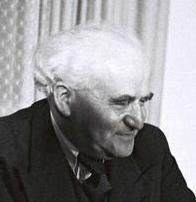
Ben-Gurion and others in their respective presentations to the convention went to lengths to distinguish between the concepts of “transfer”, “dispossession” and “expulsion” and to stress the morality of such a transfer. “Transfer” was not the same as expulsion. The Commission’s report, Ben-Gurion made clear, did not speak of “dispossession” of the Arabs but only of “transfer”.
On 29th July he further pointed out that the Jews in Palestine had already been peacefully transferring Arabs through agreements with the tenant farmers and
only in a few places was there a need for forced transfer. . . . The basic difference with the Commission proposal is that the transfer will be on a much larger scale, from the Jewish to the Arab territory. . . . It is difficult to find any political or moral argument against the transfer of these Arabs from the proposed Jewish-ruled area. . . . And is there any need to explain the value in a continuous Jewish Yishuv in the coastal valleys, the Yizrael [Esdraelon Valley], the Jordan [Valley] and the Hula? (From the full report of the Convention, 1938, as are all quotations)
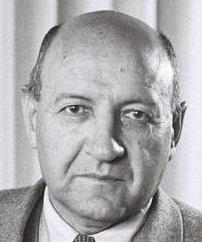
Eliezer Kaplan portrayed the transfer of Arabs as a something of a humanitarian act to make them at home among their own people:
It is not fair to compare this proposal to the expulsion of Jews from Germany or any other country. The question is not one of expulsion, but of organized transfer of a number of Arabs from a territory which will be in the Hebrew state, to another place in the Arab state, that is, to the environment of their own people.
Other speakers doubted the feasibility of transfer. Yosef Bankover, a founder of the Kibbutz Hameuhad movement and member of the Haganah regional command said:
As for the compulsory transfer . . . I would be very pleased if it would be possible to be rid of the pleasant neighbourliness of the people of Miski, Tirah and Qaiqilyah.
Bankover stressed to delegates that the Commission’s report implied that any transfer was to be undertaken voluntarily. Compulsion was against the intent of the report. Given that Bankover did not believe the British would risk further riots and bloodshed by enforcing Arab transfers. He rejected the report’s appeal to the Turkish-Greek transfers as a relevant case-study: these transfers were in effect by force and certainly under threat of being killed if they did not move, he said.
So the issues being debated and discussed were:
- the moral justification of transfer — (this was generally accepted)
- would forced transfers be practical?
- would forced mass Arab transfers be adequate compensation for the Jews giving up their aspirations to have the one and only state over all of Palestine?
- did the Peel Commission recommend transfer far enough afield? If the Arabs were only moved next door into Transjordan then the expansionist hopes of the Jewish state would be limited. Should not the Arabs be transferred to Syria and Iraq instead?
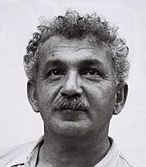
Berl Katznelson, a Labor leader, opposed the two state partition arguing that not even the transfer of Arabs would make it worthwhile:
My conscience is absolutely clear in this respect. A remote neighbour is better than a close enemy. . . . But it never crossed my mind that the transfer “to outside the Land of Israel” would mean merely to the vicinity of Nablus. I have always believed and still believe that they were destined to be transferred to Syria or Iraq.
I do not contest our moral right to propose population transfer. There is no moral flaw in a proposal aimed at concentrating the development of national life. On the contrary: In a new world order it can and should be a noble human vision. . . .
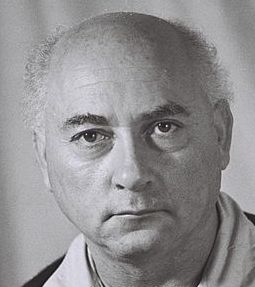
Despite having the right, Zisling opposed the idea of transfer because it would inevitably lead to war with neighbouring states:
They are talking here about forced evacuation, but the Commission report explicitly stated — twice — the need for agreement. [Delegates] are saying an agreement with the collective and coercion of the individual . . . but the individual Arab will hold on to this country with his fingernails . . . the use of force will be the only option left to us: an evacuation with “automatic rifles”. . . . This would be a war indeed.
Zisling recommended the Jews wait till a more opportune time to transfer the Arabs. Let the Jewish state develop first and then some time in the future arrange a peaceful swap of Arabs from Palestine to Iraq and other Arab states in exchange for their Jews coming to the new state of Israel.
Many delegates expressed approval of Arab transfer on moral grounds while finding fault in its practicability.
 Golda Meyerson [= Golda Meir]
Golda Meyerson [= Golda Meir]
I, too, would want the Arabs out of the country and my conscience would be absolutely clear. But is there a possibility [of its implementation without Arab consent and British assistance]?
[Transfer was] certainly a just and fair solution [but he] could not see the force that could carry it out.
I do not raise any moral objections. If suitable land will be ensured for the Arab transferees, no injustice will have been done to them. . . . however, the question is whether it is possible to uproot and re-plant tens of thousands of peasant families against their will.
The demand that the Arabs should move out and evacuate the place for us, because they have sufficient place to move to and we have no place . . . is very just and very moral, but in this situation now, we would not be able to present it to the political world as a serious claim, and against our will we have to come to terms with partition.
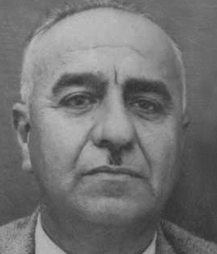
Eliahu (Lulu) Hacarmeli represented Oriental Jews and took quite a different, much bolder, stance on the question of transfer:
As for the transfer — the painful and the terrifying question — first, I say: “Do not be too righteous,” secondly, we could also have the following proposal, of course with the agreement of those concerned: in neighboring Arab countries, Mesopotamia, Syria, Arabia, and the Yemen, there are today 100,000 Jews. In return for the land that the Arab emigrating from the Land of Israel will sell, he will purchase estates in Mesopotamia. And that country, which consisted in ancient times of tens of millions of Assyrians and Babylonians and flourished during the Baghdad Caliphate, will flourish again by concentrating the Arab people in it. . . . In return, our distant brothers whom I represent in this assembly, will return to this country.
. . . . This transfer, even if it were to be carried out through compulsion — all moral enterprises are carried through compulsion — we will be justified in all senses. And if we negate all right to transfer, we would need to negate everything we have done until now. . . .
This is a just, logical, moral, and human program in all senses.
Arye Tartakover [=Arieh Tartkower], another Oriental Jew, came to the opposite conclusion to Hacarmeli:
Is not there a danger that if we establish the principle of a nation-state purged of its national minorities, that then they may use the same principle against us in Arab countries surrounding the Land of Israel and no foothold will be given to us there? Is this not too high a price to pay in order to get rid of a few dozen of thousands of Arabs from the Hebrew state?
Twentieth Zionist Congress
3rd to 21st August, 1937,
Zurich
The same issues were addressed with much the same viewpoints. Ben-Gurion, Weizmann made their views known (not repeated here since they have been covered in the previous posts). Golda Meyerson likewise repeated the message she delivered at the Poalei Zion World Convention above. Some other speakers and their views are listed here.
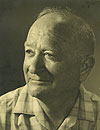
I myself do not believe that we would be able to transfer all the 300,000 Arabs. . . However, I assume that part of them will transfer.
Baratz was addressing some of the only delegates to denounce the plans to uproot Arabs, the Kibbutz Haartzi Shel Hashomer Hatza’ir, who condemned the idea of Arab transfer as ‘dangerous’ and ‘anti-socialist’. (See the Wikipedia article for their support of Arab rights and also how they divided over the Nazi movement.)
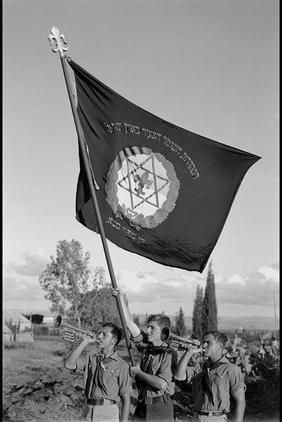
Baratz addressed them:
Isn’t it evacuation which has been continuing our work in the country for the last 40-50 years? Didn’t we transfer Arabs from D’ganya, Keneret, Merhavya, and Mishmar Haemek? I do remember the nights on which Shmuel Dayan [the father of Moshe Dayan] and I were called to Merhavya to help “Hashomer” [a paramilitary organization of Zionist settlers established in 1909. . . . carrying out [Arab] evacuation. What was the sin in that? . . . I also know that even before the proposal of a ‘Hebrew State’ appeared, a plan had already been worked out by one Jewish colonization company to transfer Arabs from known villages in the Galilee to Transjordan. . . . Why is artificial commotion being created around this matter?
Members of Hashomer Hatza’ir are saying by the establishment of a Hebrew state we are creating a barrier between us and the Arabs. Isn’t such a barrier already existing and permanent in the country? Aren’t we building exclusive train stations, an exclusive post service, exclusive government office, an exclusive sea port, exclusive roads, and an exclusive economy as far as possible?
The Dganya settlement to which Baratz referred had purchased the land from absentee landlords and then displaced the Arab village of Umm Juni. The settlement of Merhavya resulted in the displacement of the Arab village al-Fulah (population 563 according to the 1922 census). (The links are to Israeli and Wikipedia historical descriptions of the villages.)
As with the previous convention, overall there was division over the question of partition of Palestine into two states, one Arab and one Jewish. But there was overall unity on the question of mass transfer.
Naftali Landau (representing the Alliance of General Zionists of Eastern Galicia):
They must stipulate that the state offered should be large enough to accommodate big immigration during the next 15-20 years. They must also insist on the transfer of the Arabs.
And again:
Without transfer we would not be able to carry out our plan. . . We must not give up transfer. On the contrary, it is our duty to demand it from England and the League of Nations.
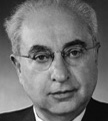
Rabbi B. S. Brickner (of the General Zionists of the United States)
The attempt of population transfer involves, of course, many difficulties, and it is a matter of great responsibility. But after all, we only want to transfer the Arabs from one place to another in their same country of residence so that a wide way will be opened to our systematic colonization.
Samuel-Wise condemned partition. On the question of transfer he read out a letter from a Christian supporter of Zionism, Rev. J H. Holmes, who urged the Jews to follow the example of the Turks and Greeks.
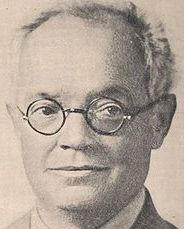
Moshe Glickson [=Gluckson]
A heavy fog rests over the question of transfer; it is no wonder that amongst us there are enthusiasts who believe that it is possible to remove hundreds of thousands of Arabs from the Jewish state practically while standing on one leg. Dr. Weizmann, who is more cautious than many who support his [transfer] proposal, is maintaining here that in his opinion it would be possible to transfer . . . 5,000 per year. . . . This will not have a great value. Five thousand per year is only a small part of the Arab natural growth. . . . It seems to me that at the end of the day . . . not many Arab fellahin who are ready to leave the Jewish state will be found.
Brodetsky added his voice to rejecting the two state partition as proposed while embracing the transfer of Arabs plan as one that was not immoral. He hoped for further negotiations with the British on the establishment of a Jewish state in Palestine.
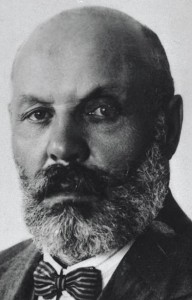
Ussishkin rejected partition of Palestine and insisted that Arab transfer should happen regardless of the outcome of the question of a Jewish state. In a speech in January 1937 (at the Conference of the General Zionist party in Tel Aviv) he said:
There was a time when private property was a sacred thing. . . . Times have changed, however. In all parts of the world a process of parceling off large estates and making them available for the landless peasants is going on. The same principle applies not only to individuals but to nations as a whole. The Arab people have immense areas of land at their disposal; our people having nothing except a grave’s plot. We demand that our inheritance, Palestine, be returned to us and if there is no room for the Arabs, they have the opportunity of going to Iraq.
At the Twentieth Zionist Congress he argued stridently against partition as criticized Weizmann’s embrace of the Peel recommendations:
When I heard the speech of the head and the foremost person in our movement . . . Dr Weizmann on the transfer of 300,000 Arabs from the Jewish State. . . I said to myself: O God in haven, how wide this [partition-cum transfer] psychosis has has spread amongst our greatest men! . . . Why should Muhammad all of a sudden leave our country? First is there any hope that the Arabs who live in our country will agree, voluntarily, to hand over those millions of dunums to us?
The Final Vote
The Congress adopted by a large majority the resolution that partition as recommended by the Peel report was unacceptable. For many delegates not even the removal of 300,000 Arabs was sufficient compensation to accept partition.
The Jewish Agency Executive was given the right to negotiate with the British government for a future Jewish state in Palestine.
Rabbi Meir Berlin summed up the views:
The basis of Zionism is that the land of Israel is ours and not the land of the Arabs, and not because they have large territories, and we have but little. We demand Palestine because it is our country.
Rejection of partition did not mean, however, the rejection of idea that Arabs should be transferred. Efforts to work towards their transfer continued as strongly as ever among Ben-Gurion’s supporters in the Jewish Agency and the Yishuv.
The Soskin Plan of Compulsory Transfer, 1937

Selig Eugen Soskin [=Suskin] was inspired by the Congress to draft a detailed Arab transfer plan that became the basis for an alternative proposal by the Zionist movement that was handed to the successor of the Peel Commission, the Woodhead Commission. That submitted proposal went under the name Exchange of Land and Population.
Soskin argued that the Jewish state had to be accompanied by a special Land Fund that would enable the “settling of masses of Jews” on “national land” and the compulsory removal of Arabs:
I therefore insist upon the compulsory transferring of the whole rural Arab population from the Jewish State into the Arab State. . . .
The exchange of land and population, alias the transferring of the Arab rural population, must be done with the greatest speed possible. This is a revolutionary act which has to be finished in the shortest time. The transferring of the Arabs by such numbers in a long period shall not have the desired effect of freeing the country from the heavy burden of a second class citizen and cheap producers. . . .
The [re-]settling of the Arab rural population must be preserved as a great humanity work. Tenants shall become freed from the exploitation of the effendis. . . .
The total Arab numbers to be transferred, Soskin foresaw, was 40,000 families or 250,000 Arabs. Soskin’s transfer plan concluded:
From the above statement and suggestion, it is clear that the Jewish state is unthinkable without compulsory transfer of the Arabs to the Arab state in the shortest time possible. . . .
.
Continuing. . . .
If you enjoyed this post, please consider donating to Vridar. Thanks!

“The Final Vote
The Congress adopted by a large majority the resolution that partition as recommended by the Peel report was unacceptable. For many delegates not even the removal of 300,000 Arabs was sufficient compensation to accept partition.
The Jewish Agency Executive was given the right to negotiate with the British government for a future Jewish state in Palestine.”
JW:
My first complaint here is that the article is obsessed with trying to show that there is a history of high level Jewish desire and planning to forcibly move Palestinians out of Palestine. No mention is made of the even stronger desire of the Arabs to move all Jews out or worse or the fact that circumstances were clear that the Jews needed a majority Jewish State more than the Palestinians needed a majority Palestinian State.
More important in negotiations though than what either side wants (and what side does not want everything) is what either side is willing to accept. The article does not fairly summarize the two sides reactions to the Peel Report and compare them to each other. From the Wikipedia page:
https://en.wikipedia.org/wiki/Peel_Commission#The_Arab_reaction
“The Jewish leadership accepted partition with mixed feelings as an opportunity for sovereignty.”
Jews accepted the two-State solution and the Peel Report in principle but rejected its specific boundaries and decided to continue negotiating.
“The Arab reaction
The Arab leaders, both in the Husseini-controlled Arab Higher Committee and in the Nashashibi National Defense Party denounced partition and reiterated their demands for independence,[1][21][22] arguing that the Arabs had been promised independence and granting rights to the Jews was a betrayal. The Arabs emphatically rejected the principle of awarding any territory to the Jews.[23] With the Arab Higher Committee also lobbying, hundreds of delegates from across the Arab world convened at the Bloudan Conference in Syria on 8 September and wholly rejected both the partition and establishment of a Jewish state in Palestine.[24]”
Arabs did not just reject the two-State solution but condemned it and refused to negotiate further.
The basic partition of the Peel Report became the basis of subsequent negotiations. Considering that Israel was forced to win a war (repeatedly) to get its State it should be understood that in any subsequent negotiation, Israel, as the winner, will now ultimately end up with something more than the Peel Report.
But again, my biggest complaint here is that the article above does not clearly address the more important and key issue of the Israeli/Palestinian conflict, both sides’ positions regarding a two-State solution.
Joe — how much of that Wikipedia article did you actually read? Just enough to find a line in the introduction that exonerated the Jews – never mind those devilish details in the discussion below?
Never mind the quotations that the Zionist leaders made it clear that their acceptance of the Peel Commission two state proposal should be equivocal, that it should be tactical only, as a means of getting something established — but that once that was done then the borders could be “changed” and Israel be given the whole land for its state. The two-state solution was accepted as a tactical political ploy to get the process for a Jewish state started.
The Wikipedia article adds further support to the theme of my post. The Arabs were in their rejection of the two-state proposal more honest than the Zionist fathers.
Your justification of state expansionism through warfare is something of an ethical novelty, yes? I guess if God told Joshua to do it and God made those bad Canaanites rise up to meet their own doom….